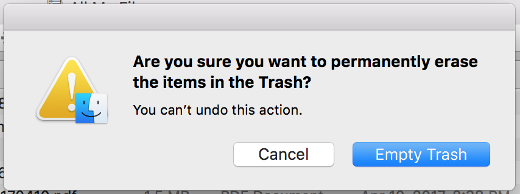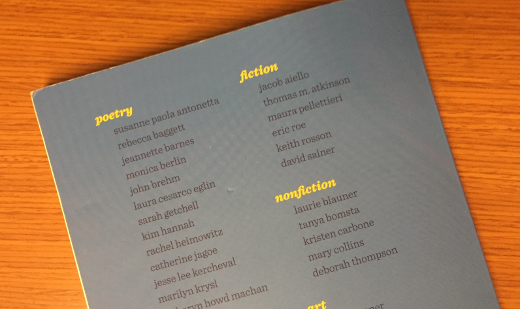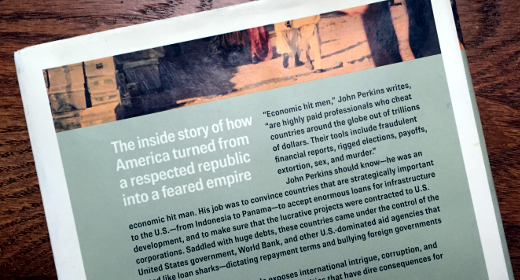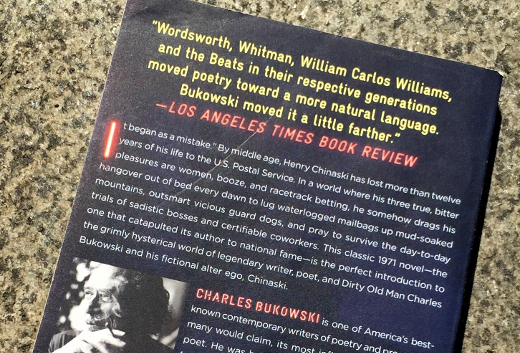My Takeaways From December Magazine Volume 27.2
Beyond the writing I have done here at The Hot Iron I have also explored more creative and expressive forms of writing. Don’t get me wrong, what I wrote about registering domain names for your children took a unique approach, but it’s not certainly something to curl up and read in bed.
With this in mind, I attended last year’s Printers Row Lit Fest in Chicago with a different lens and steps than previous times. Not only was this quest more fulfilling, but I spent most of the day there as well.
One of the first stops I made was at the table of December magazine, a biannual literary journal. The non-profit magazine has its roots in the Windy City but now hails from St. Louis. I was intrigued as this publication presents works from a variety of authors, some being their first published work. I subscribed on the spot – a mere $20 for a year – and got the current issue as a bonus. Later that day I tore into it, reading it cover to cover, all the while thinking, “hmmm.”
When the latest issue, volume 27.2, arrived, I was now 3 issues relatively new world of poetry and short stories, and as you may have already guessed I have some takeaways from reading this edition and the others of December magazine.
Poetry is more than what I was taught in school – First I have to say when I say “school” I stop at high school, as my college experience had me mostly in the computer lab. I was taught poetry was about structure and rhyming. So as I grew up, if it didn’t have a set structure or rhyme, it wasn’t a poem. Granted much of the lyrics of the songs I grew up listening to didn’t always rhyme either, but I must have been too busy singing and moshing to them to notice.
The drama is in the details – The greatest thing I have enjoyed of the many short stories I have read has been how details of whatever story is being told, from gripping to mundane, come alive as the details are being revealed. It’s like peeling layers of the onion to reveal more connection to the story. That zoom in on the details, or lack thereof, can make or break a story.
I can do this – Enough said there… I’ll stop this takeaway, wrap up and get back to an idea for a short story that has been simmering in my head.
Upon further perusing the Lit Fest that day I found many, many other periodicals similar to December magazine. Rather than collect them all, I stuck with one, one I just renewed for another year of unique reading and inspiration.
As I give away books as I read them, I did the same for this issue of December magazine. Rather than directly giving it to someone, I simply left it on a Chicago CTA Red Line subway car one morning. I only hope the person who happened upon it enjoyed it as much as I did.
Do you read any literary journals? Perhaps December magazine? I welcome your thoughts in the comments of this post.
This is from The Hot Iron, a journal on business and technology by Mike Maddaloni.
Did you enjoy this? Subscribe to The Hot Iron by RSS/XML feed or Read by Email.
Book Take-Aways • Strategize • (2) Comments • Permalink
Why I Don’t List My Birthday On LinkedIn
Happy Birthday! Or should I say, Happy Birthday?
When you hear those words, what do you think of? A child’s birthday party? A co-worker gathering for birthdays for the month? Or a recurring line from a Christmastime cartoon?
Or perhaps do you think of an onslaught of people, some you may not even know well, sending you those 2 words in a rote fashion over a social media platform?
It is for this latter reason why I don’t list my birthday on LinkedIn.
Sincerity vs. Obligation
Adults have a variety of traditions when it comes to their birthdays. Some don’t acknowledge them at all, some dog you with it like it’s a national week of celebration, and most are somewhere in between. For myself, my immediate family will acknowledge it, I get a few messages from those cousins who keep track of everyone’s birthdays, and that’s it. And I am fine with that.
As social media platforms have evolved, they have asked for more and more information about you. This includes LinkedIn, which most regard as business social media platform and, ideally, above the fray of such frivolity. However, that’s not the case, as they ask for the date you entered this mortal coil. Capturing this in their databases, now owned by Microsoft, is not the extent of it, as they now share your birthday with your connections on that unique day – as you go through your feed seeing who has a new job or work anniversary, you will also see who is marking the day as surviving another year on this planet.
This compels people to “like” or go as far as to wish you a Happy Birthday with a canned greeting. On occasion someone, likely a person who actually knows you, may put a more personalized greeting, but for the most part the obligatory methods are the ones which are used. On the surface this may seem nice – look, everyone’s wishing me a Happy Birthday – but it is insincere, and for some, intrusive, as many people don’t like it highlighted.
Just Say No As I Do

If you want to rise above the fray of the frivolity of empty birthday greetings on LinkedIn, there are 2 steps you need to follow. First, don’t list your birthday. Under your contact info on your profile page, simply remove your birthday, as shown above. Second, you can turn off notifications of those who still have their birthday listed on the social platform, so you won’t be inundated with requests to wish them something that may not want to hear. The image at the top of this post is what this looks like on the LinkedIn notifications page.
But Wait, What About in The Name of CRM?
As some of you are reading this, you may be thinking I am missing the point of why LinkedIn is asking for this information to begin with. My guess is some of you who are in sales or have businesses may think birthdays are a great way to engage with customers and provide an added level of personalization, and taking their birth date from LinkedIn to your own customer relationship management system is a natural step.
Think again. Just because someone has their birthday listed on a social media site, it’s not because they consciously entered the information. Other social media platforms like Facebook and Twitter ask for more information than – if you think about it – you should comply with. Entering your birthday may be as natural as entering your email address or even your name, as you don’t think twice about it. Just because it’s listed there for a person, don’t assume you personally have permission to do with that data what you will. The platforms likely have it covered in their terms of use though. The best way to alleviate this is to just not do it.
Deconstructing Birthdays in LinkedIn
Birthdays are personal. Sending birthday greetings to a person you do not know well, just because you saw they entered their date onto a social media platform, can be awkward. Especially when using a business-focused social platform like LinkedIn, pause should be taken when acknowledging or using this information, as the person who entered it may not be aware of how it would be used or shared.
Do you have your birthday listed on LinkedIn? On other social media platforms? I welcome your thoughts on this in the comments to this post.
This is from The Hot Iron, a journal on business and technology by Mike Maddaloni.
Did you enjoy this? Subscribe to The Hot Iron by RSS/XML feed or Read by Email.
Business • Social Media • Strategize • Technology • (2) Comments • Permalink
My Takeaways From The Book Confessions Of An Economic Hit Man
Everything happens for a reason. That phrase is something I have always believed in. Even if I don’t know what that reason is, or don’t believe the reason when I hear it, I have always felt that somewhere, someone knows why something happened.
This phrase came to mind as I read the 2004 novel Confessions of an Economic Hit Man by John Perkins. The book, which he says is truly that, his confession – is about how corporations have worked and continue to work on behalf of the US government to gain influence, allies and assets from other countries for the benefit of said corporations and the US government, but not necessarily for the countries they are purporting to help.
As you might guess, Perkins states he was an economic hit man, or EHM. The book is the story of his life from growing up in New Hampshire to being offered the role and traveling the world doing the bidding of others through the consulting firm he worked for. When successful, he benefitted greatly. When not, he still got paid, but then handed the work off to others to get the job done, presumably at any cost.
As I read this tale of international intrigue, many thoughts swirled through my head, including the following takeaways.
Act Locally – Perkins traveled the world as an EHM. He didn’t do it sitting behind a desk in his Boston office. Granted this was the 1970’s and 1980’s and you didn’t have the tools of the Internet we have today. But if you want to be effective and close the deal, you have to directly connect with others, on their turf. I have done this before and in the case of an EHM, for good or bad.
Tell Your Story Well – With a topic like this, it is easy to dismiss it as a farce and conspiracy theory without even reading one word of it, Now I am not saying this story is 100% true, as I have no clue. I am simply absorbing what the author wrote. But what he wrote, though, is a well-told story where he ties world events in with his own tale. If it is 100% false, then he is an amazing fiction writer.
Everything Happens For a Reason – See what I wrote above. What Perkins wrote about may or may not be the reason – again, I don’t have any special insight, I can only take him for his word. Then again, what I’ve seen in headlines over the years, my hunch is there is more to the truth than fiction. And as Mark Twain once said, truth is stranger than fiction.
If you have any interest in current affairs, world politics or simply love a great story, I recommend Confessions of an Economic Hit Man. I bought this book myself, and as I pass along all books I read, this one is going to a good friend who is an international consultant who himself has traveled to all corners of the planet. Is he an EHM itself? I don’t know, and if he is I’m not sure I even want to know for sure.
Have you read this book by John Perkins? If so, what did you think? I welcome all thoughts in the comments to this post.
This is from The Hot Iron, a journal on business and technology by Mike Maddaloni.
Did you enjoy this? Subscribe to The Hot Iron by RSS/XML feed or Read by Email.
Book Take-Aways • Strategize • (0) Comments • Permalink
Digital Spring Cleaning

Call it a rite of passage or a subconscious impulse, but there is just something about the weather getting warmer and wanting to get rid of excess possessions. Though Spring is only a few weeks in as I write this, perhaps it was the warmer weather in Chicago (hello, a cookout in February?) that got me started with this sooner.
Personally, as I have purged much of the excess tangible things I have acquired over the past years, my spring cleaning this time was more virtual – specifically, digital. I have been carrying around some digital baggage for a while that was beginning to wear on me, let alone cost me money.
So I exchanged my broom and dustpan for my fingers and a physical trash can for one on my desktop and did the following.
Archive Excess Files Off My Computer – When I bought my Macbook I purposely got the maximum available memory and a smaller hard drive. Why? I don’t want to carry around a lot of unnecessary files. So I scoured my hard drive for what I truly didn’t need to carry around and 1) deleted what I didn’t need to own at all, and 2) archived what I needed to keep.
This activity freed up a lot of space on my hard drive, making searches more efficient, and mitigated the need to buy more online backup space, what I use it as part of my digital backup strategy.
Shuttered Old, Inactive Web Sites – As someone who, among other technology skills, builds Web sites, I still had out there a few sites that, though I had high hopes and intent for, had languished due to lack of time as well as changes in my personal priorities. So I closed them – backing up all of the code and databases – and in most cases redirected the domain names to my blog at TheHotIron.com (link) where you are likely reading this.
I would be remiss to say some of those sites still had some sentimental meaning to me, but in the end, it save me some emotional baggage, and led to the next cleaning task going a lot smoother.
Consolidated Web Hosting Accounts – All these Web sites and services have to live somewhere, and for me they were with multiple companies. My goal was to consolidate the 4 of them into 1. However, as I got into it, I decided to leave it to 2 for reasons that, if this isn’t boring enough for some of you reading it, would certainly put you to sleep!
Where this task saved some money, it also allowed me to isolate and think about what I need for Web hosting, leading to an even better way to manage it, and save even more money. This is a work in process as a result, but one that has already deliver gains.
Dropping Domain Names – As someone who has worked a lot with domain names, from advising to managing domain name portfolios for individuals to publicly-traded firms to everyone in between, it’s probably needless to say I have registered a number of domain names for myself over the years. Just like a financial portfolio, a domain name portfolio has to be reviewed, evaluated and changed periodically. In this case, that included dropping domain name.
For this task, similar to dropping domain names, there were a few emotions I needed to put aside. In other cases, I just realized having the .com for a domain was enough and the .biz and .info were not needed. The savings from this cleanup will pay over time as some domain names don’t renew right away.
Antialiasing, or Deleting Email Addresses – Over the years I have employed various strategies to manage email. Where some have worked great, like managing my inbox to zero (LINK), others proved to be more work that saved. This was the case with setting up email aliases or forwarders, which were separate email addresses that forwarded to my main email address. I set them up to use for specific purposes, like eCommerce (.(JavaScript must be enabled to view this email address), noting xyz.com is not my email domain!) and mailing lists (.(JavaScript must be enabled to view this email address)), etc. Et. Al., yada-yada, henceforth… you get the picture.
As you might guess, I had a lot – over a dozen aliases when I stopped counting – and though they were not being actively used, they were the destination for most of my spam email. So I deleted them, or “antialiased” as I like to call it. I now have 1 email address, and a heck of a lot less spam.
Canceled My Yahoo Accounts – As Spring rolled around, so did the word that Yahoo had yet another major password breach. I have had Yahoo accounts for over 20 years, namely using them as backup email addresses and tying them to Flickr accounts when they acquired the photo sharing service. As time went on, I never used the Yahoo portion of the accounts, as well uploading photos to Flickr went out of vogue for me.
So it was with less emotion that I canceled my Yahoo accounts. Nobody was emailing me at those addresses, and there was little traffic to my Flickr photos. Granted all of those photos will disappear from the Web, but if anyone really needs to see pictures of me sitting on the visitors dugout bench at Wrigley Field, contact me directly.
Deconstructing Digital Spring Cleaning
Digital Spring cleaning is similar to eliminating tangible items, but is more for peace of mind, not to mention possibly cost savings. This peace of mind gave me the same relief I get by packing up a box of stuff and shipping it to GiveBackBox or dropping it off at Goodwill. It is also something I will plan doing every year along with getting rid of physical crap.
Have you done digital Spring cleaning yourself? Or have you even thought of it before? I welcome your thoughts on it in the comments to this post.
This is from The Hot Iron, a journal on business and technology by Mike Maddaloni.
Did you enjoy this? Subscribe to The Hot Iron by RSS/XML feed or Read by Email.
Domain Names • Strategize • Technology • Thrive • Web Development • (0) Comments • Permalink
My Takeaways From the Novel Post Office By Charles Bukowski
People learn about books and authors from a variety of sources – friends, social media, browsing airport stores, the New York Times Bestseller list... just to name a few. I first learned about writer and poet Charles Bukowski in a much different way – a bar.
The Bukowski Tavern is a quaint place tucked into the corner of a parking garage complex that also houses a high-end bowling alley and seafood restaurant in Boston’s Back Bay neighborhood. The long, narrow joint serves a great selection of beers and has a kitchen, the latter which made “The Buk” a favorite lunch spot for me when I worked nearby several years ago. That, and the fact my co-workers didn’t like it, made me a frequent patron as a getaway from my daily grind.
On the walls of Bukowski Tavern are paintings of the image of its namesake as well as quotes from his books. One would think by being immersed in such a locale would drive me to want to read his collection of books and poems. One would think, but that was then when curling up with a good book meant sticking my nose in a technical manual. That was then, this is now, and I have finally begun reading Bukowski’s work.
Post Office was his first novel, written later in his life after publishing numerous short stories and poems and, as you might guess, working for the U.S. Postal Service. It is a gritty, real-life tale, yet written in a compelling way to hold the reader through the hard-drinking life and times of a mail carrier. As I read and absorbed this piece, the following takeaways came to mind.
The topic can be mundane – Working, drinking, bad relations... these don’t necessarily jump out at you as topics you want to read about. As I made it through the pages of Post Office, the vivid story presented in front of me became as if I was watching it, and made for an entertaining use of my time. It fulfills the expression that it’s not what you say, it’s how you say it.
Read something different – A short perusal of the other book takeaways I have written here at The Hot Iron shows a variety of books, but few of them are fiction. This is not to dismiss the gripping and compelling business books I tend to gravitate to, but as I read Post Office it reminded me I need to mix it up more.
Write, right now – Post Office was written and published when Bukowski was 49. I am 49. Granted he had written many, many poems and short stories for many years. Where I won’t equate my own little blog as an equivalent, as I have written the 800+ posts here over the last decade, I have gained a great appreciation and love of writing, and it’s time to get those books out of my head and into a more tangible format.
As you might guess, Post Office is far from a children’s novel. I highly recommend it for anyone who is not easily offended by language, and loves a good, real story. I gave this book to a friend who is a huge reader but has never read Charles Bukowski himself. It was easier to hand the book over to him than to fly him out to Boston to the bar, though the latter would be much more fun.
If you have read Post Office or any of Bukowski’s other works, I’d welcome your thoughts in the comments to this post. I am now ordering his second book, Factotum.
This is from The Hot Iron, a journal on business and technology by Mike Maddaloni.
Did you enjoy this? Subscribe to The Hot Iron by RSS/XML feed or Read by Email.
Book Take-Aways • Thrive • (2) Comments • Permalink







